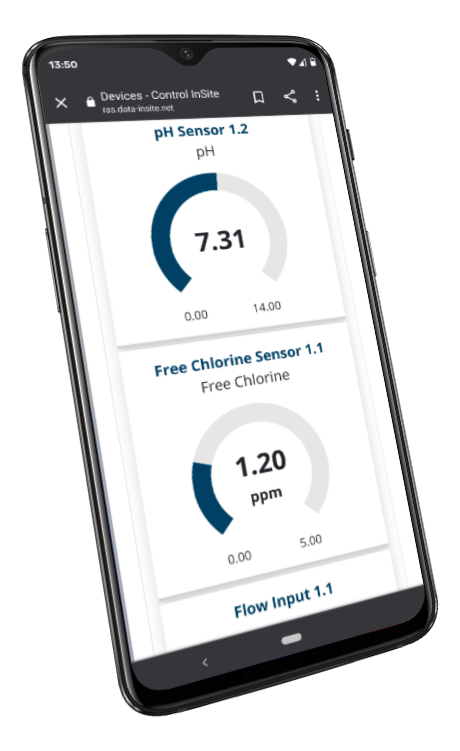Remote access to your Raspberry Pi can significantly enhance your ability to manage and interact with your projects, especially when you're away from your primary setup. Whether it's for monitoring a home automation system or accessing data from a remote sensor network, having secure and reliable software solutions is crucial. This article explores the top five software options that allow you to connect to your Raspberry Pi remotely with ease and security.
In today's interconnected world, being able to access your devices remotely is more important than ever. For Raspberry Pi users, this means finding the right tools that offer both functionality and security. The following sections will delve into various methods and software solutions that cater specifically to the needs of Raspberry Pi users who require seamless remote access capabilities. Let's explore these options in detail.
Connecting to Your PLC Network Through Raspberry Pi
Raspberry Pi has become an essential tool for many tech enthusiasts and professionals alike. One common use case involves connecting to Programmable Logic Controllers (PLCs) over a network. By integrating a Raspberry Pi 4 into your local network, you can establish a connection between your PLC and external networks, enabling remote management and monitoring. This setup allows you to control industrial processes from virtually anywhere.
The process begins by configuring your Raspberry Pi as a bridge between your home network and the PLC. You'll need to ensure proper networking settings are applied, including static IP assignments and firewall configurations. Additionally, consider using secure communication protocols like SSH to protect data transmissions during remote sessions.
For those looking to extend their reach beyond traditional boundaries, combining Raspberry Pi with cloud services offers even greater flexibility. Cloud-based solutions provide robust infrastructure for hosting applications and storing data, making them ideal companions for managing complex systems involving multiple devices spread across different locations.
Exploring Remote Access Features in Raspberry Pi Documentation
Raspberry Pi documentation provides comprehensive guidance on setting up remote access features. Among these, Samba stands out as a powerful tool reimplementing the Server Message Block (SMB) protocol. With Samba installed, users gain the ability to share files and printers across heterogeneous environments seamlessly.
To enable remote terminal access via SSH, follow the official Raspberry Pi documentation steps carefully. Ensure that all necessary packages are updated before proceeding with configuration changes. Once configured correctly, you should be able to log into your Raspberry Pi's command line interface from any device connected to the internet.
Beyond basic connectivity, exploring advanced topics such as headless operation modes or utilizing graphical interfaces through Virtual Network Computing (VNC) adds versatility to your remote access toolkit. These enhancements empower users to perform tasks efficiently regardless of physical proximity constraints.
Revolutionizing Remote Control with Revolution Pi Connect
When dealing with restricted networks, specialized hardware like the Teltonika RUT-955 proves invaluable for maintaining stable connections. Designed specifically for industrial applications, this LTE router ensures uninterrupted communications under challenging conditions. Pairing it with a Revolution Pi Connect module creates a formidable combination capable of handling demanding IoT scenarios.
Users tackling new challenges often find themselves needing innovative approaches to overcome obstacles. For instance, configuring remote access permissions while adhering to strict security policies requires careful planning and execution. Leveraging pre-built modules available within the Revolution Pi ecosystem simplifies integration efforts considerably.
Furthermore, community forums serve as excellent resources where members share experiences and troubleshoot issues collaboratively. Engaging actively within these platforms fosters learning opportunities and accelerates problem resolution times significantly.
Pi-hole Remote Access Configuration Made Simple
Pi-hole serves as an effective ad-blocking solution for networked devices. However, accessing its dashboard remotely introduces additional considerations regarding privacy and protection. Fortunately, several software options exist to facilitate secure web-based interactions without compromising sensitive information.
A popular choice among enthusiasts involves deploying WireGuard, a modern VPN technology designed for high performance and ease of deployment. By installing appropriate client applications on target machines, administrators gain unrestricted access to Pi-hole functionalities irrespective of geographic location differences.
Should difficulties arise during implementation phases, referring back to debug tokens generated by Pi-hole helps pinpoint potential misconfigurations quickly. Utilize community-driven guides supplemented by official documentation to streamline troubleshooting procedures effectively.
Enhancing User Experience Through Raspberry Pi Connect
Raspberry Pi Connect simplifies account creation processes, allowing users to generate personalized sign-in links effortlessly. Upon visiting these unique URLs, individuals authenticate directly into their respective Raspberry Pis securely. Such mechanisms reduce complexities associated with traditional username/password combinations.
Once authenticated, explore diverse functionalities offered by each method supported by Raspberry Pi Connect. Options range from executing shell commands remotely via SSH terminals to interacting visually through VNC sessions. Each approach caters uniquely depending upon specific requirements faced by end-users.
Stay informed about emerging trends shaping future developments around remote access technologies applicable to Raspberry Pi ecosystems. Continuous education empowers practitioners to leverage cutting-edge advancements optimally, ensuring maximum productivity gains throughout project lifecycles.

